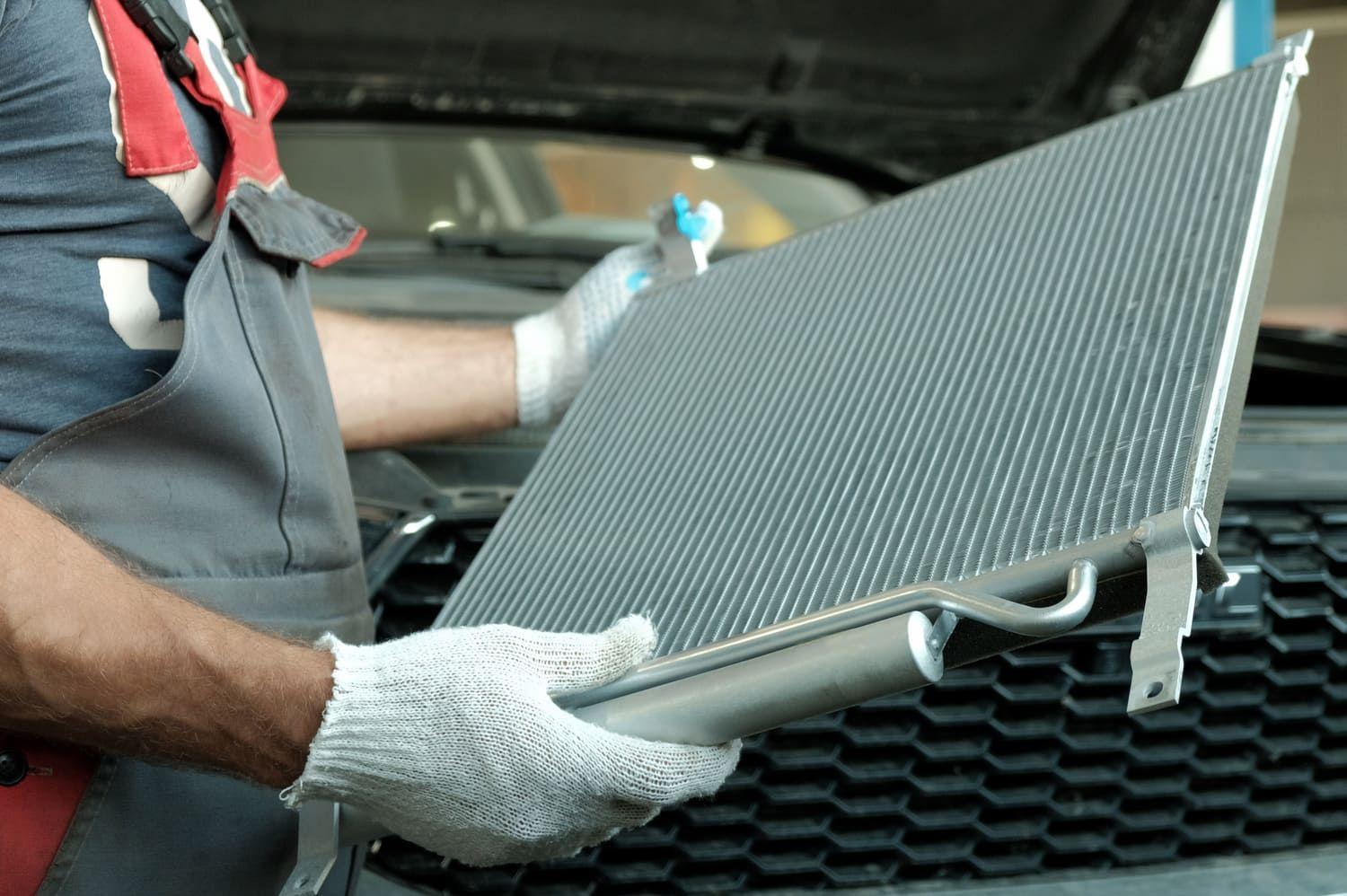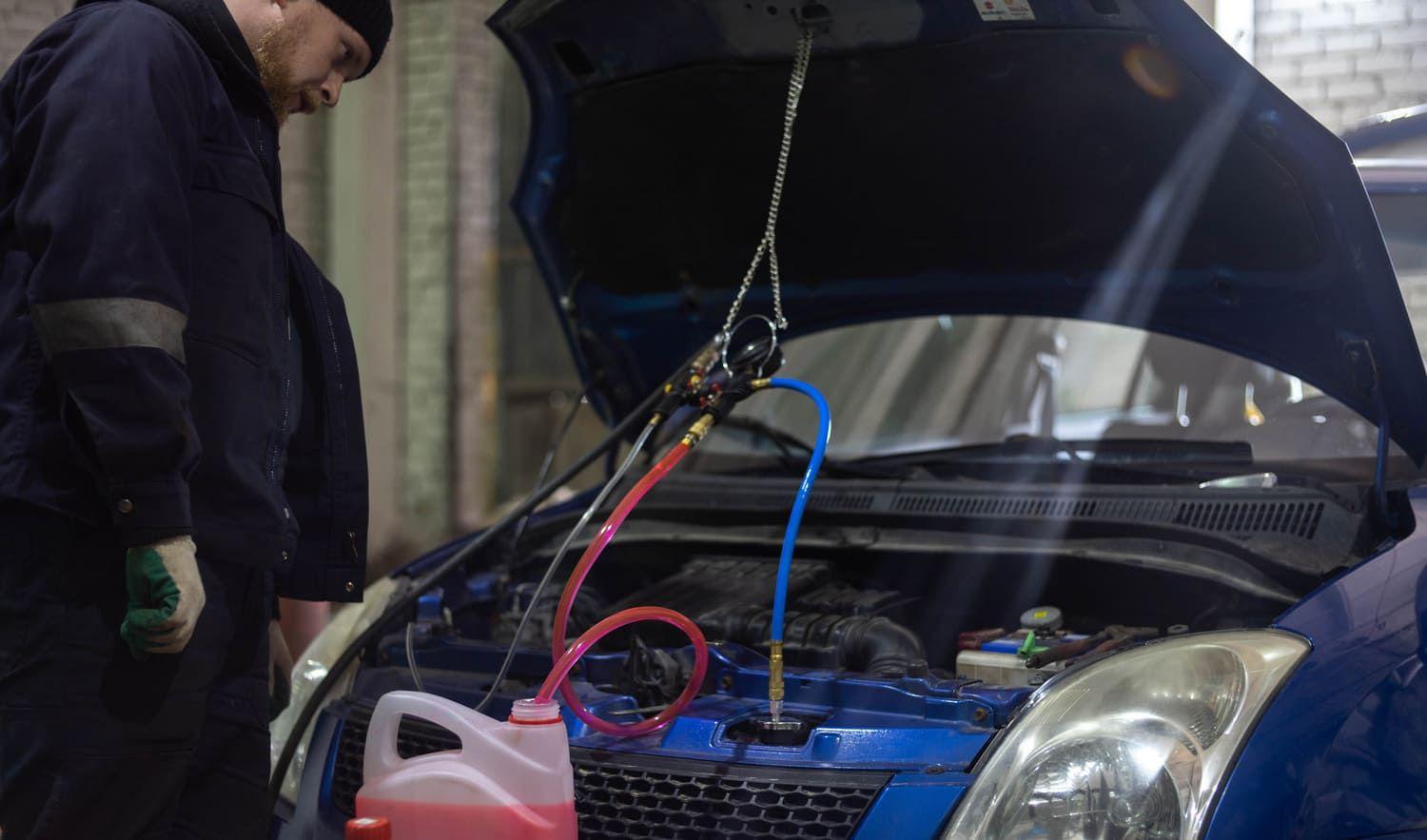
How Much Does It Cost To Repair a Car Radiator?
Car radiator replacements usually cost anywhere between £300 to £950 in the UK.
That’s a big price gap, but your car’s radiator is essential for keeping the engine running smoothly. It regulates temperature and prevents overheating, so if it fails, replacing it is crucial.
Radiators can fail in a few ways, and there are clear signs when they do. Here's how to spot the damage and what a new radiator repair might cost you.
Key takeaways
How much do car radiators cost to replace or repair?
Car radiator issues can range from minor leaks to full system failure.
Repairs are often cheaper but temporary, while replacements are needed when damage is more serious or the part is too worn. Car repair finance can help you split the costs into interest-free payments.

Here are general costs for both.
Cost of replacing a car radiator
Replacing a radiator in the UK typically costs between £300 and £700, depending on your car’s make, model, and labour rates.
Luxury or performance vehicles, such as BMW or Audi, may push this closer to £1,000 due to more complex systems and pricier parts.
This price usually includes a new radiator unit, coolant refill, and labour costs.
Cost of repairing a car radiator
Radiator repairs are more affordable, with typical costs ranging from £100 to £250, depending on the extent of the issue and whether parts such as hoses or seals are affected.
Common radiator repairs include patching small leaks, replacing cracked hoses or seals, or flushing out blockages.
While cheaper, these fixes may not be long-term solutions if the radiator is old or heavily corroded.
Car radiator replacement cost breakdown - Make vs location
Radiator replacement costs vary depending on several factors such as your location, the age of your car, and most importantly, the make and model.
Prices provided are estimates and may differ based on these variables.
Car Model | Average Radiator Replacement Cost |
|---|---|
Toyota Aygo | £300 |
Ford Fiesta | £325 |
Mazda 3 | £400 |
Fiat 500 | £325 |
BMW 3 Series | £450 |
Mercedes C-Class | £510 |
Volvo XC90 | £415 |
Your location can also affect the average price you’ll pay for a car radiator replacement.
Here are average costs for key UK regions, but keep in mind that actual prices may vary depending on your vehicle, the garage, and the extent of the repair.
UK Region | Approximate Radiator Replacement Cost |
|---|---|
London | £350 – £700 |
South East England | £320 – £650 |
Midlands | £300 – £600 |
North West England | £280 – £580 |
Scotland | £270 – £550 |
Wales | £280 – £570 |
How much do radiator leaks cost to fix?
Expect to pay between £50 and £600 to fix a serious coolant leak from your radiator or cooling system.
However, other components can also cause leaks, which we discuss in more detail below.
How long do car radiator repairs take?
It’s best to ask your mechanic but plan for at least half a day without your car.
Premium car radiator replacements may take longer. Most garages prefer replacing radiators since it costs about the same as repairing them.
How long should a car radiator last?
With a modern alloy car radiator, as long as the coolant is regularly flushed and topped up according to your service schedule, and no damage occurs, the radiator can often last the lifetime of the car.
Can I fix a car radiator myself?
If you’re an experienced home mechanic, replacing a car radiator is manageable. But for first-timers, it’s best to consult a garage.
The process varies but generally includes draining coolant, removing parts, replacing the radiator, and reinstalling.

What does a car radiator do?
The radiator is the biggest part of your car’s cooling system. It cools the engine by removing heat from the coolant.
The coolant moves through the engine and radiator with the help of the water pump, which is usually powered by the cam belt. The expansion tank on top of the radiator holds extra coolant when needed.
Can I fix a radiator leak at home?
If your radiator is leaking, it’s important to fix it as soon as possible.
Driving with a leak causes more coolant to escape because the system is pressurised when the engine is running. We don’t recommend using radiator leak-stop products.
While they might help in an emergency, these chemical solutions often only provide a temporary fix and can block other parts of the cooling system, such as narrow passages in the engine head or pipes to the turbo, potentially causing further damage.
Causes of a coolant leak
An engine's coolant system is made up of many different components, all of which can cause leaks or the disappearance of coolant.
The plastic expansion tank can develop small cracks from heat and pressure.
Rubber hoses connecting the radiator to the engine can split and leak coolant.
A blown head gasket can let coolant enter the engine or escape.
The water pump moves coolant around, but if its seal fails, it can leak too.
Can I drive with a leaking radiator?
Your car might still drive fine, and if the leak is minor, it may not overheat even on longer journeys. However, all it takes is an unexpected traffic jam or an unplanned trip to cause thousands of pounds in damage.
An overheated engine can lead to a blown head gasket or warping of the head and engine block. Both issues require extensive repairs and significantly increase costs.
5 signs your car radiator needs replacing
Before we sign off, we’ll leave you with the main signs your car radiator needs replacing or repairing.
Since the radiator plays a key role in regulating engine temperature, any unusual rise or drop in temperature should prompt a check of the radiator and coolant system. You may also notice other warning signs, such as:
Engine running hotter than usual
Engine overheating during normal use
Coolant level drops below the minimum level after refilling
Coolant is leaking from the car after parking for a period of time
There is damage from an accident or strikes from road debris
Final summary
Radiators aren’t just for winter days. A healthy radiator keeps your engine cool and your car running smoothly.
If you notice leaks or temperature changes, don’t ignore them. With timely checks and repairs, you can avoid bigger problems and keep your car on the road safely.
Split the cost with Bumper
Last-minute repairs and services can leave you (and your wallet) feeling down. But with Bumper, you can split the cost of repairs into monthly payments at no extra cost.
Apply online for up to £5,000 and choose from 1,000s of trusted repairers.

Split your car repair cost over monthly repayments interest-free.

Split the cost of your next repair
Other related articles from our blog

Advice
4 min read
How much does a car VCR repair cost?
A car VCR repair cost can sit anywhere from £100 to £600, depending on the origin of the VCR fault. See 2026 VCR costs and how to manage the issue online now.

Advice
4 min read
How much does an Vauxhall ECU repair cost?
Vauxhall ECU repair costs range from £50 to £900 in 2026. Find out how much your ECU repair will be and what to do next online with Bumper here.

Advice
3 min read
How much does an ESP system repair cost?
An ESP or ESC system repair on a car can cost between £60 and £800. Find out more about ESP and ESC repair costs here.